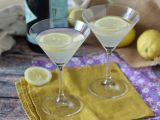Is it possible to cook with alcohol in the recipes to be eaten by the little ones?

In the culinary world, alcohol is used to enhance flavors and create delicious recipes. From meat in a beer sauce such as carbonnade flamande, to shrimp flambéed with whiskey, to a dessert with liqueur, these techniques are common in gastronomy. In addition, there is a deeply rooted popular belief: "Alcohol evaporates completely when cooking". However, this myth, although widely spread, is not entirely true. Scientific studies have shown that, even after long cooking, there is always a residual amount of alcohol left in the food.
This brings us to a crucial question: is it safe to include alcohol in recipes that will be consumed by children? The answer is simple: no, and here we explain why.
Does alcohol really evaporate during cooking?
One of the most widespread myths in cooking is that alcohol disappears completely during cooking. While it is true that some of it evaporates due to the heat, several studies have shown that a residual percentage always remains, and this depends on factors such as:
- Cooking time: Quick preparations, such as flambées, retain up to 85% of the alcohol.
- Temperature: Even in long cooking, such as stews lasting several hours, up to 5% may remain.
- Amount used: More alcohol in the recipe equals a higher probability that some alcohol will be subtracted.
Why is it a risk for children?
Children's bodies are more sensitive to toxic substances, and alcohol is one of them. Although the residual amount may seem insignificant to an adult, in children it can:
- Alter their nervous system.
- Generate metabolic problems, since their liver is not as developed as that of an adult.
- Affect their cognitive and physical development if consumed repeatedly.
Healthy and safe alternatives
Cooking for the little ones doesn't mean giving up flavor. Here are some options to substitute alcohol in your recipes:
- In stews and sauces: Use meat, chicken or vegetable broth instead of wine.
- In desserts: Replace liquor with concentrated fruit juices, such as apple or grape.
- In marinades: Opt for tomato sauce or lemon juice mixed with herbs and spices.
Cooking with conscience
In past generations, it was common to use alcohol with children in seemingly harmless ways: dipping pacifiers in wine, giving a teaspoon of rum to put them to sleep, or applying liquor to the gums to relieve teething pain. These practices were based on popular beliefs and lack of scientific information.
Today we know that these habits can be dangerous. Science has shown that alcohol, even in small amounts, affects the nervous and metabolic systems of children, whose bodies are not yet ready to process it. Although they were once seen as practical solutions, our greater understanding today leads us to protect their health with safer measures.
Cooking with alcohol is not essential for delicious results. Remember, there are alternatives that, without compromising taste, are suitable for the consumption of even the youngest members of the household.




Comments